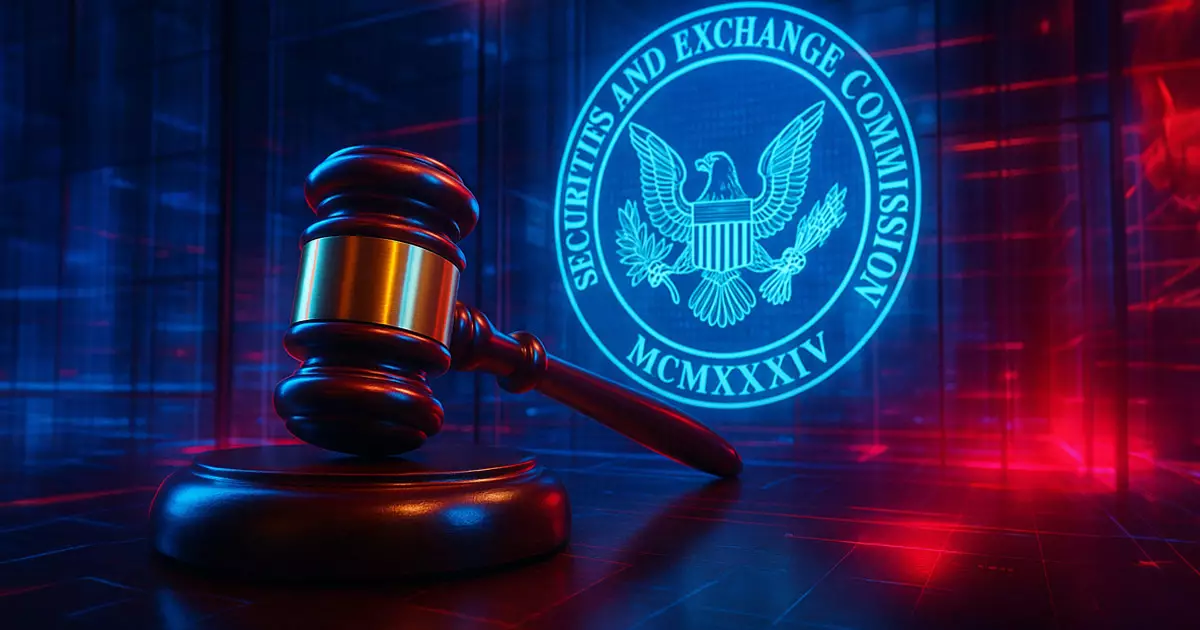In a rapidly evolving financial landscape, the DeFi Education Fund (DEF) has made a compelling case for the necessity of a token safe harbor to guide decentralized finance initiatives. Their recent letter to the Securities and Exchange Commission (SEC) does more than merely propose regulatory relaxation; it serves as a visionary blueprint that recognizes the immense potential of DeFi while acknowledging the complexities of regulatory oversight. With the SEC grappling with the challenge of classifying various tokens and technologies, the DEF lays out five core principles aimed at creating a balanced regulatory framework that encourages innovation rather than stifling it in favor of outdated models.
In an era marked by both opportunity and uncertainty, the DEF’s approach clearly embodies a forward-thinking perspective that is desperately needed. By advocating for a time-limited exemption for token projects actively pursuing decentralization, they strike a judicious balance between fostering innovation and ensuring compliance. This is not just an organizational plea; it’s a clarion call for a shift in regulatory thinking that must adapt to technological advancements, not merely legislate them.
Principles for Facilitation, Not Constraint
The DEF’s recommendations highlight the critical importance of a technology-agnostic framework. By emphasizing risk assessment over rigid guidelines tied to specific blockchain technologies, the organization champions an adaptive regulatory strategy that acknowledges the uniqueness of each project. This is vital, for if the SEC were to favor certain technologies, it would likely lead to a homogenization of the marketplace that discourages creativity and diversity.
The concept of an “Exit Test” is particularly intriguing and necessary. This metric assesses when a project has achieved sufficient decentralization to transcend its classification as a security. By establishing clear criteria—such as max transparency, user custody of assets, and full automation—the DEF strives to ensure that these benchmarks don’t just serve the interests of the SEC but also the flourishing of decentralized systems. Allowing for a realistic timeframe for projects to prove their mettle is a vital element that presents accountability without constraining innovation.
Inclusivity in Regulatory Frameworks
In a significant move toward inclusivity, the DEF contends that a wide range of projects should qualify for this safe harbor. It’s essential to recognize that many decentralized initiatives were launched before the regulatory landscape became murky. By allowing these projects the opportunity to meet decentralization goals, the SEC can capture a broader spectrum of innovation and participation within this burgeoning sector.
Furthermore, the DEF correctly identifies early-stage development teams’ challenges concerning disclosure requirements. In a space where agility is paramount, overburdening fledgling projects with heavy compliance requirements threatens to choke innovation at birth. By focusing on core aspects like source code transparency, governance, and cybersecurity audits, the DEF proposes a framework that allows developers to prioritize their initiatives while remaining accountable.
Protecting the Marketplace
Another vital aspect of the DEF proposal is the protection of secondary market participants. The notion that intermediaries, such as digital asset exchanges, should be exempt from traditional securities regulations while a token remains in the safe harbor is a game-changer. This exemption not only alleviates legal uncertainties but also encourages a broader range of participants in decentralized markets. This is necessary for the maturation of DeFi, as vibrant marketplace dynamics are crucial for healthy price discovery and liquidity.
While the DEF offers this temporary framework, they simultaneously call for a comprehensive legislative approach from Congress. This duality is important—while the need for immediate relief through safe harbors is clear, the long-term stability of the DeFi landscape will ultimately depend on durable legal frameworks that provide clarity rather than temporary fixes.
A Commitment to Ongoing Engagement
Finally, it’s worth noting the DEF’s commitment to continuous dialogue with the SEC and the larger crypto community. Their intention to publicly disseminate recommendations for further feedback showcases a proactive stance. Rather than being static, regulations need input from the very innovators they intend to guide.
The principles proposed by the DEF hold the potential to not only reshape the existing regulatory landscape but also to foster an environment ripe for innovation, efficiency, and growth. This is not merely regulatory change but a potential revolution in how decentralized finance can thrive while remaining accountable to essential legal frameworks. The future of DeFi need not be a battle against regulators; instead, it could become a partnership for advancement in the financial world.














